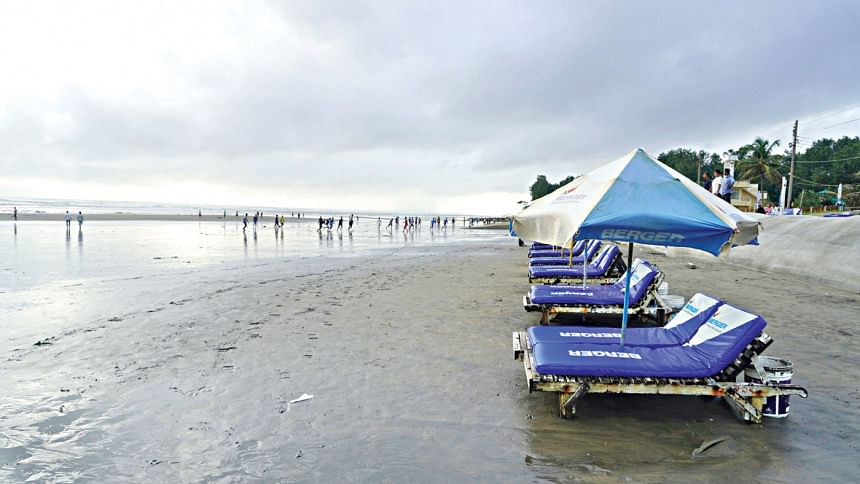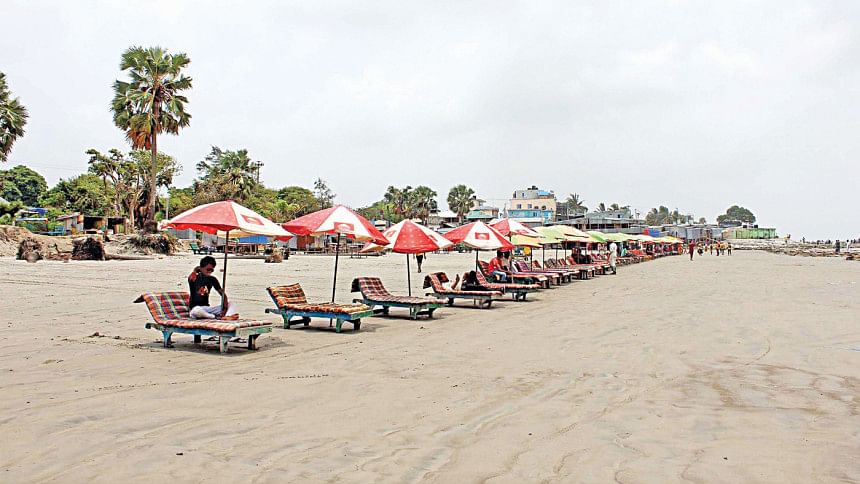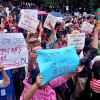Tourism jolted by curfew

Zahra Mayeesha, a 26-year-old private job holder, was preparing to return to Dhaka from a two-day vacation to Sreemangal with her husband on July 16.
However, due to the violence stemming from the quota reform protests, the couple decided to delay their journey back to Dhaka, hoping to leave after another day or two.
Those plans also fell through after the government imposed a nationwide curfew on July 20.
They had budgeted around Tk 18,000 for the two-day stay. As they were unable to return, their costs for hotel fare and food skyrocketed.
Further adding to their woes was the internet blackout starting on July 18, which forced the couple to go all over town hunting down an ATM that would dispense cash.
In the end, Zahra and her husband managed to book a flight to Dhaka on July 24.
The trip cost them around four times what they had estimated, with total expenses ultimately reaching around Tk 75,000.
The newlyweds were among a plethora of tourists who had found themselves stranded in various parts of Bangladesh over the past week.
Furthermore, most trips that had been planned by tourists over the past week were cancelled due to the volatile situation.
"Neither tour operators nor tourists were prepared for the recent situation, which occurred suddenly," said Taufiq Uddin Ahmed, former president of the Tour Operators Association of Bangladesh.
He added that the unprecedented business shock had served as a bitter experience for tour operators, tourists, and tourism-centric businesses, but hoped the impact would not be felt for long.
Imranul Alam, owner of Tour Group BD, which operates houseboat services in Tanguar Haor in Sylhet, said July to August is the peak season for tourism in the region.
The natural beauty of Tanguar Haor as well as the tea gardens of Sreemangal and the waterfalls of Jaflong attracts many visitors during the period, he added. However, no tourists visited these spots over the past week after most bookings were cancelled.
According to Alam, there are at least 200 houseboats in Tanguar Haor, of which around 80 percent remain booked during the rainy season.

But all the houseboats are currently sitting idle, he said.
Alam said a houseboat brings in between Tk 3 lakh to Tk 5 lakh per week depending on size and facilities, estimating that houseboat operators and other service providers would miss out on at least Tk 2 crore in revenue.
Subrata Chakma, manager of Khasrang Hill Resort in Sajek, said around 200 tourists were stranded in the valley for three days after the government imposed a curfew and bus services from Khagrachhari to Dhaka were shut down.
However, law enforcement agencies helped the tourists leave by providing transport.
He said the tourists did not face any food shortages, but were worried as they could not contact family and relatives due to the internet blackout. Chakma added that there was no sign of nervousness among the tourists, who instead treated the situation as part of an adventure.
Businessmen in Kuakata lost around Tk 50 crore in revenue over the last seven days, estimated Rumman Imtiaze Tushar, president of the Tour Operators' Association of Kuakata.
Around 150 tourists who were stuck in Kuakata returned to their homes with the help of law enforcement agencies on Tuesday evening.
Abul Hasan, a resident of the capital's Malibagh area, said: "I came to Kuakata with my family on July 5 and planned to stay until July 17 to enjoy the beauty of the rainy season. But we got stuck here."
Selim Newaz, general secretary of the Cox's Bazar Hotel Motel Guest House Owners' Association, said around 20,000 tourists were visiting Cox's Bazar per day before the curfew was imposed.
"But after the curfew, tourists left the town and no new tourists are arriving, resulting in a slide of business. We are incurring huge losses.
"We don't know when the situation will be normal and we will get tourists," he lamented.
Mohammad Ali, acting president of the Cox's Bazar Restaurant Owners' Association, said many eateries have remained shut due to a lack of tourists, including his own venture "Jhawban".
"We have been incurring huge losses since all costs for operating the business have to be paid," he added.



 For all latest news, follow The Daily Star's Google News channel.
For all latest news, follow The Daily Star's Google News channel. 








Comments